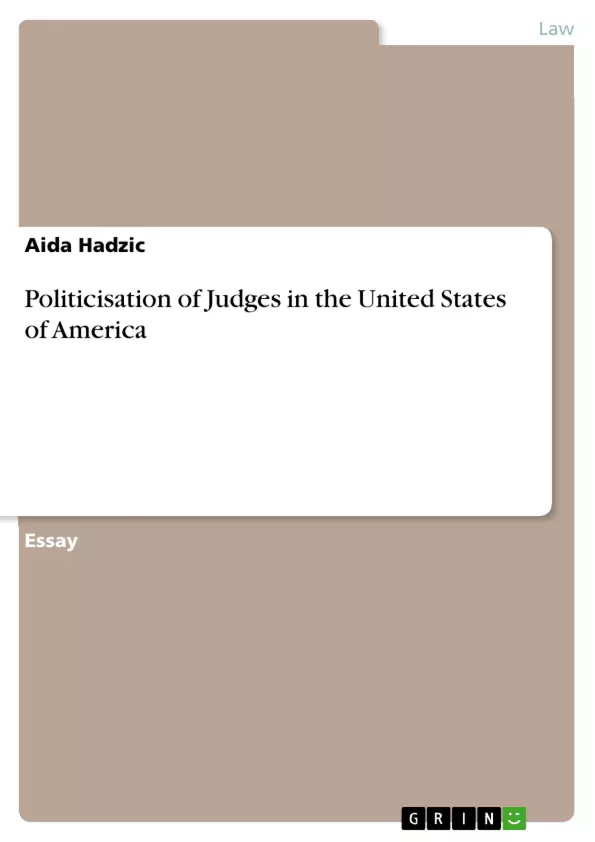The paper discusses the problem of the politicisation of judges through the judicialisation of rights. It covers different approaches to constitutionalism and the ensuing questions arising in matters of interpretation with regard to the nature of the constitutions. Due to arising political and social changes the arising question is whether judges are indeed merely independent interpreters of the constitution and rights.
Inhaltsverzeichnis (Table of Contents)
- The Politicization of Judges through the Judicialization of Rights
- Judicial Review and Its Defenders
- Alexander Hamilton
- Hirschl
- Thomas Jefferson
- The Rule of Law
- Fuller's Principles
- Rawls' Perspective
- Raz's Argument
- Approaches to Interpretation of Laws
Zielsetzung und Themenschwerpunkte (Objectives and Key Themes)
This text examines the potential for judges to be politicized through the process of judicialization of rights, specifically focusing on the role of judicial review. It explores the tension between the ideal of judicial independence and the potential for bias in judicial decisions.
- Judicial review and its implications for the separation of powers
- The potential for bias and politicization in judicial decisions
- Different perspectives on the role of judges in interpreting the constitution
- The concept of the Rule of Law and its relationship to judicial independence
- Various approaches to interpreting legal texts and their impact on judicial decisions
Zusammenfassung der Kapitel (Chapter Summaries)
- The text begins by outlining the concept of judicial review and its intended purpose in protecting individual rights and preventing government abuse of power. It raises the question of whether this process can lead to the politicization of judges.
- The chapter then explores the views of Alexander Hamilton, who argued that the judiciary, with its lack of power to enforce its own decisions, is the least dangerous branch of government. He emphasizes the need for judges to be independent and trained in constitutional interpretation.
- Hirschl's perspective is presented, challenging the idea of judicial review as a neutral mechanism. He argues that it can be used by elites to preserve their own power and influence.
- The chapter concludes by presenting Thomas Jefferson's skepticism of judicial review, fearing that it could lead to despotism. He advocates for a system where each branch of government has equal power in interpreting the constitution.
Schlüsselwörter (Keywords)
This text explores the key concepts of judicial review, judicial independence, separation of powers, politicization of judges, Rule of Law, and different approaches to legal interpretation. It examines the relationship between these concepts and their implications for the protection of individual rights and the integrity of the legal system.
Frequently Asked Questions
What is the "judicialization of rights"?
It refers to the increasing reliance on courts and judges to resolve political and social issues by framing them as matters of constitutional rights.
Are judges in the USA truly independent?
The paper explores the tension between the ideal of independent interpretation and the reality of politicization through judicial review and personal bias.
What was Thomas Jefferson's view on judicial review?
Jefferson was skeptical, fearing that giving judges the final say on the constitution could lead to judicial despotism and undermine the separation of powers.
How did Alexander Hamilton defend the judiciary?
Hamilton argued the judiciary is the "least dangerous branch" because it has neither "force nor will" and depends on the other branches to enforce its rulings.
What is the relationship between the Rule of Law and judges?
The Rule of Law requires that laws be applied consistently; however, different approaches to interpretation (like those of Raz or Rawls) can lead to different judicial outcomes.
- Quote paper
- Aida Hadzic (Author), 2010, Politicisation of Judges in the United States of America, Munich, GRIN Verlag, https://www.grin.com/document/311197



